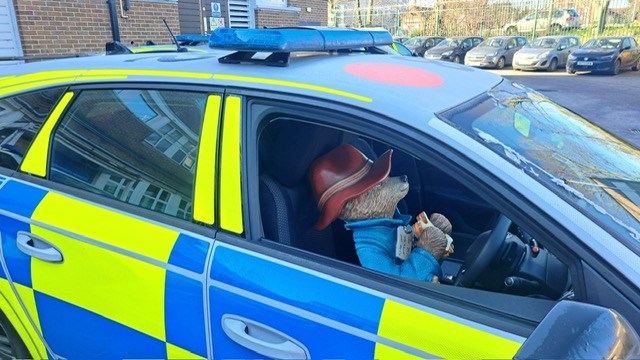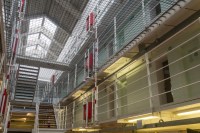Two RAF engineers were spared jail today, after pleading guilty to vandalising a statue of Paddington Bear in the Berkshire town of Newbury. The young, drunk servicemen broke the Peruvian bear in half and then transported his front façade back to RAF Odiham in a taxi. Later jars of marmalade, sandwiches and poems were left at the crime scene by members of the public
A few decades ago perhaps the bear’s disappearance would have remained a mystery, his fate known only to those who frequented the station’sbar. Unfortunately for Daniel Heath and William Lawrence, the two guilty men, Newbury’s CCTV captured their entire escapade. They were soon apprehended, with Paddington found by police in Lawrence’s car. In the circumstances, a guilty plea was probably inevitable, and in the normal course of things, the story might have sunk without a trace, were it not for the District Judge Sam Goozee’s sentencing remarks.
The judge said ‘Paddington Bear is a beloved cultural icon with children and adults alike. He represents kindness, tolerance and promotes integration and acceptance in our society. His famous label attached to his duffle coat “please look after this bear”. On the night of 2nd March 2025, your actions were the antithesis of everything Paddington stands for.’
What’s fascinating here is that the judge positions Paddington as a sacred symbol of the infamous ‘British values’ of tolerance and integration, and then treats this violation of Paddington as an aggravating factor for sentencing, citing the ‘damage caused to a community asset with cultural benefits’ and ‘the harm caused to the wider community’.
I loved the Paddington books as a small boy, but can’t ever recall their Peruvian protagonist having a significant public profile until 2022, and the late Queen’s platinum jubilee, when the monarch and the bear appeared ‘together’ in a short film. After her death I saw images on social media of Paddington as a kind of psychopomp, guiding Her Majesty to the afterlife. Since then he has been depicted in a similar role with other recently dead souls.
This is fascinating. The strange thing about the post-Christian West is that as collective faith has dwindled we have not generally become a society of arch-rationalists. Instead it’s as though we need a particular quantity of religious, magical and mythical imagery, and in the absence of organised religion we’ll find or create it.
And so, after a few brief decades when nothing was sacred, we now seem to be building a new secular religion, grounded in ‘British values’ and esteem for favoured groups. In many ways Paddington is a perfect symbol for this era. A fictional migrant from South America, in the recent films he exists in an unreal alternate Britain in which hard choices and economic struggles seem not to feature. Essentially he serves as an empty vessel into which the state pours ‘kindness, tolerance… integration and acceptance’, which are held up as unquestionable virtues. Of course those who violate or harm the sacred must expect to be punished.
This reminds me of the sentencings following last August’s riots, which have been described as ‘a British McCarthyism’. This is borne out in some of the judges’ remarks, such as in one case where Jordan Plain ‘started to imitate the manner in which Muslim people pray, in order to mock their religion’. The judge describe this act as ‘grossly offensive’.
It’s not just our judiciary embracing this new faith. The Sentencing Council’s recent guidelines specifically articulated a world view in which certain groups and faiths should have a better chance of avoiding prison. They reached this conclusion because they believe as an article of faith that differences in sentencing outcomes must be driven by bias which it is their duty to eliminate. Again, the sacred goal is imposed by the secular priesthood, whether the people, or even the politicians approve.
We now seem to be building a new secular religion, grounded in ‘British values’
I believe that societies do need the sacred. It can serve the common good, uniting a society. But not, I suspect, if what is sacred is determined by those who do not understand the people and land they mean to guide and rule. I doubt Heath and Lawrence understood Paddington’s sacred nature when they chose to steal him.
And what about British values? These two young men, described by their Squadron Leader as ‘committed and diligent’, with ‘strong promise for the future’, did something stupid and terribly British when they stole a souvenir after a night out. When I asked the RAF for comment they indicated that are aware of the guilty pleas. I understand that the air force will consider the court’s findings, but that any further disciplinary action is private. I hope that both men have a long and successful future in the RAF, although I understand that bear jokes are likely to follow them for the rest of their military careers.







Comments